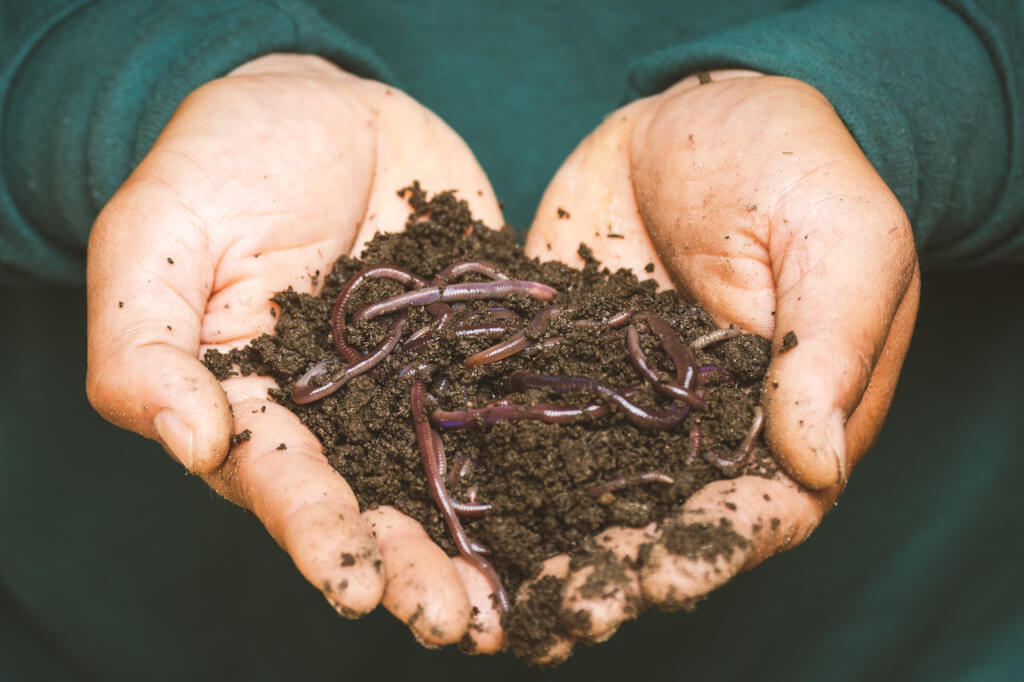The vermicasts that are produced commercially and sold to gardeners and farmers make for an excellent fertilizer; however, they are quite pricey. Earthworms provide this for us at no cost and precisely where it is required. According to vegetable expert Bill Kerr, they also provide farmers with plenty of other services.
Earthworms are responsible for the production of a natural fertilizer that does not set you back any money. They also recognize the actual worth of soil quality, although this is not the case for all commercial farmers. For a very long time, the focus has been placed on the use of synthetic fertilizers, crop chemicals, and soil tilling.
Because of the products and practices that have been used, soil quality has deteriorated all over the world, which has driven up the price of crop cultivation. Because of this, it is now exceedingly challenging for new and small-scale farmers to maintain their livelihoods.
The solution is to either reduce the amount of tilling done in the soil to a minimum or implement no-till practices and focus on increasing the quantity of humus, a particular kind of organic matter that is found in the soil.
To put it another way, the farmer is responsible for taking care of all of the living organisms that are present in the soil. These organisms, in turn, will release the tons of minerals that are bound up in the clay particles so that the plants can consume them.
This is a process that must be done over time, but it will make agriculture more efficient and economical. The need to cultivate a larger number of earthworms is a factor that is very important to consider. Earthworm populations have the potential to reach more than 2 tons per hectare in areas with favorable conditions.
An Increased Fertility Rate
When soil and organic matter travel through the digestive tract of earthworms, it becomes enriched with readily available minerals and other substances that encourage growth.
These creatures excrete casts, or feces, that have a very high degree of consistency. They not only increase the fertility of the soil, but they also enhance the number of beneficial microorganisms, which contribute further to the availability of minerals and help suppress the growth of harmful organisms.
The Rich Topsoil Becomes Deeper Over Time as a Direct Result of Earthworm Activity

Additionally assisting in the process of nutrient recycling are earthworms. Certain elements may be lost as a result of leaching in mineral soil that contains a low number of microorganisms. The yellow collar in corn fields is caused by a shortage of nitrogen due to leaching, this is something to keep in mind.
A cabbage grower once shared with me that despite applying LAN six times at a rate of 200 kilograms per hectare, he would still need to apply the seventh application because of leaching.
When there is an adequate amount of living biomass in the soil, the vast majority of the nitrogen and a great number of other elements are found within the bodies of these organisms. This indicates that only elements that have been excreted can be absorbed into the moisture of the soil, and even then, only during periods of intense precipitation.
As a result, the farmer will sustain only a marginal loss of nutrients as a result of using the method. This is the state that the soil on many farmers lands has reached, and it helps them save a significant amount of money.
Earthworms leave a slimy residue on the walls of the tunnels they create while they are tunneling through the ground. This encourages the growth of bacteria that are beneficial to the plant and makes it easier for the roots to travel.
The species of earthworms that burrow deeply into the earth also create pathways that allow for the rapid flow of rainwater and the mobility of organic material and lime to the deeper levels of the soil.
To restate, when working with soil that is rich in minerals but low in humus, you need to take extra precautions to ensure that your plants receive all of the necessary minerals in the appropriate amounts and ratios for optimal growth. This can be accomplished with the help of soil analysis and the knowledgeable guidance of representatives from fertilizer companies. But it can become extremely complex.
These proportions become less important when there is sufficient organic material present in the soil. If there is a healthy population of earthworms, the casts will provide a stabilizing effect, which means that even if the minerals are slightly out of whack, the plants will be much less likely to be negatively affected.

Are your social media efforts feeling a bit…flat? If you’re seeing the clicks but not…

Those Who Seek to Optimize Their Profits Profit maximizers are organizations that, beginning with the…

The world is currently experiencing a severe shortage of energy for a variety of reasons,…
Facilitating the Mineral Uptake of Plants

Plants are able to easily absorb the elements that are made available after traveling through the digestive tract of an earthworm. In contrast, plants growing in mineral soil might not have access to the same minerals as those growing in organic soil. Phosphorus is a prime illustration; after being added to the soil in the form of fertilizer, it may become unavailable due to the high acidity of the soil.
You can save money on pricey fertilizer and develop a buffered environment that minimizes risk if the soil contains organic material and earthworms. Organic material in the soil also provides a source of nutrients for plants. It also renders farming simpler because you don’t have to put in the effort to comprehend the complex relationships that fertilizers have with the soil.
Keep in mind that earthworms consume decomposing organic matter as their food source. They require constant access to this food in order to maintain their existence. The organic material that is found in the soil can be augmented by crop residue. Always ensure that something is growing on the land in order to promote the accumulation of organic matter.

Because we women are so incredible, there is no limit to what we can accomplish.…

Are your social media efforts feeling a bit…flat? If you’re seeing the clicks but not…

What Does the Term “Pricing Structure” Mean? Your business’s products and services can have their…

